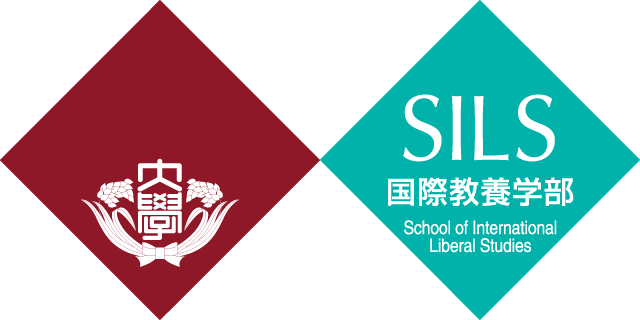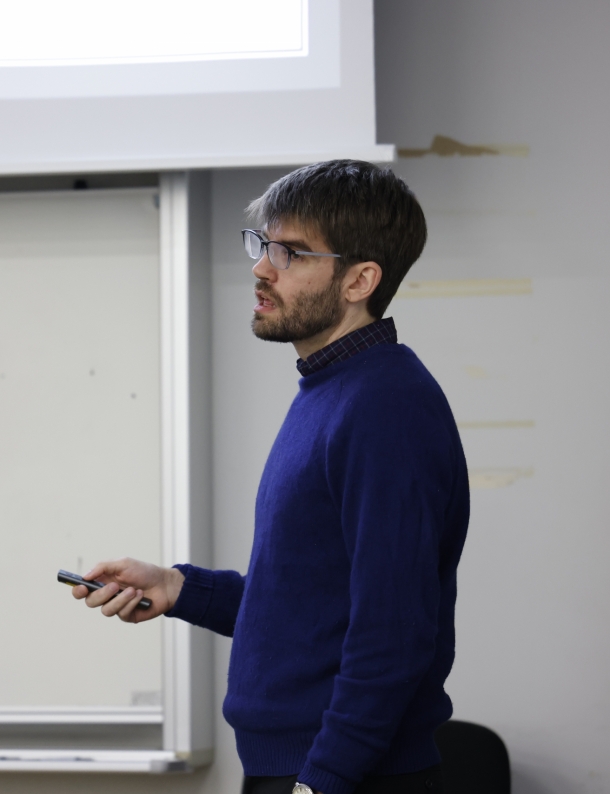- ニュース
- 授業紹介:Introduction to Ethics 51
授業紹介:Introduction to Ethics 51

- Posted
- Wed, 27 Dec 2023
― making you question the fundamental ideas of right and wrong―
The course “Introduction to Ethics 51” taught by Professor Richard Stone is intensely thought provoking and dedicated to making you question the fundamental ideas of right and wrong. It covers the foundation for ethics and its many theories and hypotheticals. The course grapples with the hard questions we face in our lives. What is the value of human life? What makes an act immoral and why should we be moral? These and other questions are discussed extensively in the many lectures in the course. It asks you to interrogate the reasoning and moral theory of history’s greatest theorists and your peers beside you. From animal ethics to utilitarianism this course is an introduction to the basic philosophy of ethics and how intensely interesting it can be.
The lectures in the beginning introduce (relatively) simple moral problems you may have considered and later shows you theories made by the historic greats to easily resolve these moral conundrums. From the ethics of eating animal meat to the modus operandi of criminals. The professor also makes clear the strengths and weaknesses of each of the moral theories discussed and lets you come to your own conclusion and inquire why we should hold such beliefs. The course prepares the tools needed to tackle these hypotheticals presented or just applying them to your own life. The course interrogates your own reasoning and moral philosophy on cordial terms. The professor will ask you why you believe “X” is the best outcome for a given problem. Not to criticize or judge but educate on the best use of the materials and knowledge taught to you to best debate your beliefs with logic and moral theory. Teaching of the many traps and pitfalls are not selected as well. The nuances of the many theories discussed are not glossed over but thoroughly investigated.
Additionally, every lesson there are group discussions on the content of the lecture. Whether it be if it’s ethical to eat meat or the implications of sacrificing one person for the security of society. These questions are tough and without a right answer. However, discussing these ideas and issues with your peers helps not only expand you and your peers’ worldview, but also teaches how to amicably discuss these ethical disputes. The professor stresses the importance of tolerance and respect we should have when discussing with our peers. As a result, the group discussions make this course stimulating and allow the free exchange of ideas letting everyone learn from each other and reinforce what’s being taught in the classroom. This plus the diverse nature of the SILS program have led me to make new friends and learn new things from my peers from many different backgrounds. Something only possible in the environment this course and SILS curates.
Lastly not to forget the professor Richard Stone who delivers the lectures in an engaging and entertaining manner. Injecting his own enthusiasm and knowledge of the subject into the lectures. I look forward to the next class to see how he addresses and educates on the next moral theory or conundrum. It brings great energy into the classroom and gets me excited to learn about ethics and philosophy. Knowledge I will carry with me and use throughout my life.
 |
This article is written by…
ヒル アンドレセン ウェルズリー(HILL, Andresen Wellesley)
|
||||
※この記事は2023年12月時点のものです。
※この科目は毎学期開講されない場合があります。


